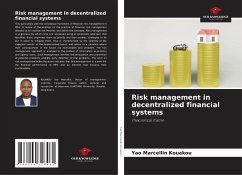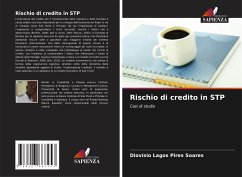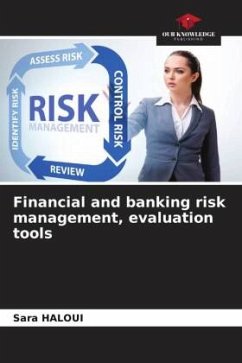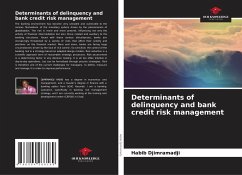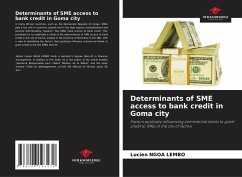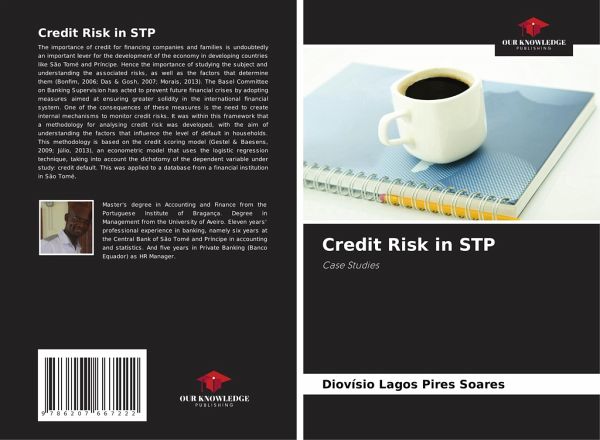
Credit Risk in STP
Case Studies
Versandkostenfrei!
Versandfertig in 6-10 Tagen
27,99 €
inkl. MwSt.

PAYBACK Punkte
14 °P sammeln!
The importance of credit for financing companies and families is undoubtedly an important lever for the development of the economy in developing countries like São Tomé and Príncipe. Hence the importance of studying the subject and understanding the associated risks, as well as the factors that determine them (Bonfim, 2006; Das & Gosh, 2007; Morais, 2013). The Basel Committee on Banking Supervision has acted to prevent future financial crises by adopting measures aimed at ensuring greater solidity in the international financial system. One of the consequences of these measures is the need t...
The importance of credit for financing companies and families is undoubtedly an important lever for the development of the economy in developing countries like São Tomé and Príncipe. Hence the importance of studying the subject and understanding the associated risks, as well as the factors that determine them (Bonfim, 2006; Das & Gosh, 2007; Morais, 2013). The Basel Committee on Banking Supervision has acted to prevent future financial crises by adopting measures aimed at ensuring greater solidity in the international financial system. One of the consequences of these measures is the need to create internal mechanisms to monitor credit risks. It was within this framework that a methodology for analysing credit risk was developed, with the aim of understanding the factors that influence the level of default in households. This methodology is based on the credit scoring model (Gestel & Baesens, 2009; Júlio, 2013), an econometric model that uses the logistic regression technique, taking into account the dichotomy of the dependent variable under study: credit default. This was applied to a database from a financial institution in São Tomé.





